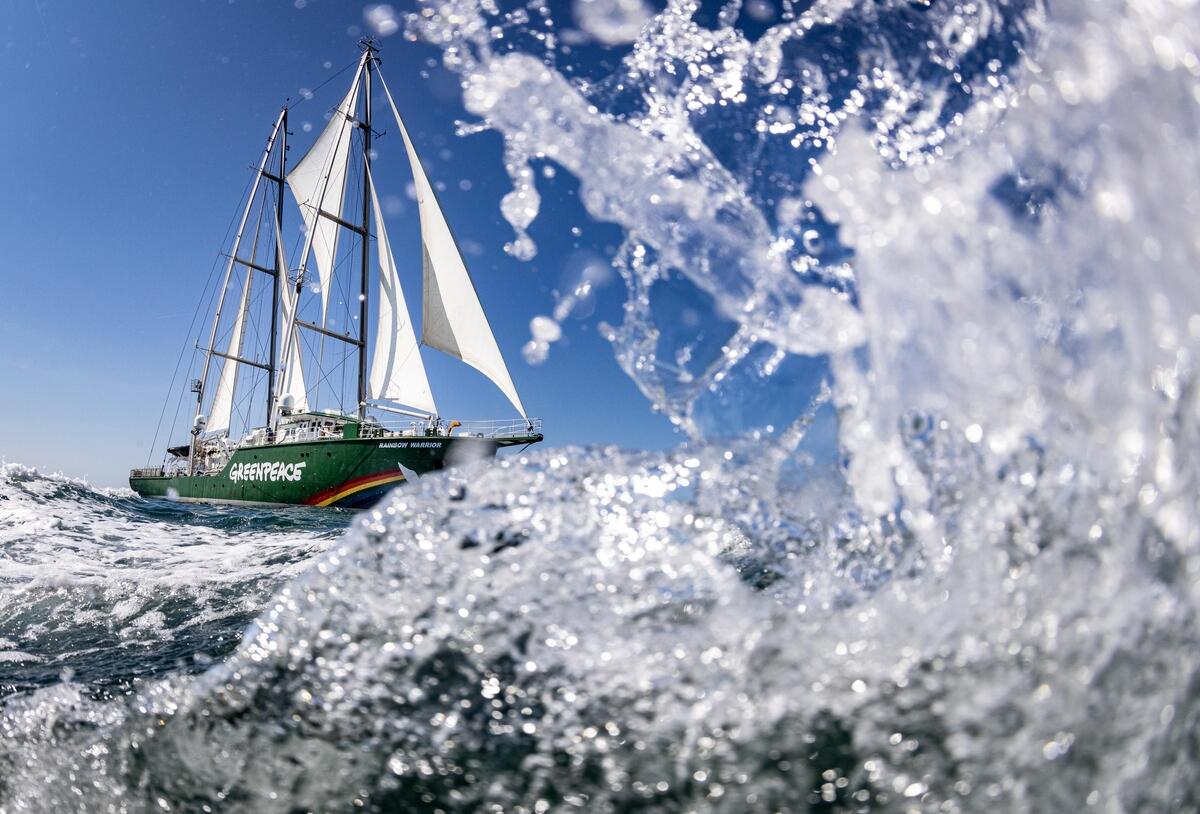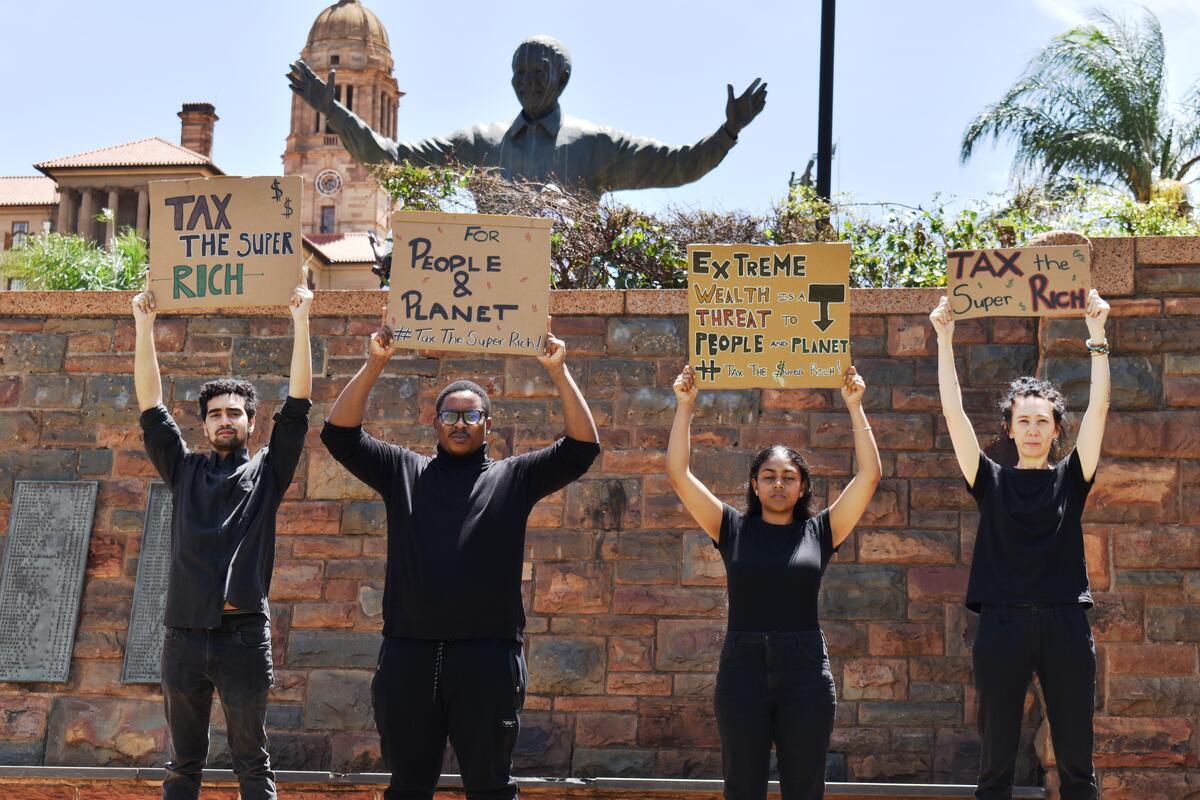MAKHANDA — On Friday, 17 December, the Grahamstown High Court in Makhanda will hear arguments in application of an urgent interdict against Shell’s seismic survey along South Africa’s Wild Coast.
The Legal Resources Centre (LRC) and Richard Spoor Attorneys – supported by Cullinan & Associates and Natural Justice – are bringing the application on behalf of the Amadiba, Cwebe, Hobeni, Port Saint Johns and Kei Mouth communities. In the previous interdict application brought by Border Deep Sea Angling Association, Kei Mouth Ski Boat Club, Natural Justice and Greenpeace Africa, the court papers illustrated that coastal communities in the Eastern Cape wished to bring their case before the court, and, on Friday, they will do just that.
This application argues that Shell does not have the necessary environmental authorisation in terms of the National Environmental Management Act (NEMA) to lawfully undertake seismic exploration activities in the area. Both the Minerals and Petroleum Resources Development Act (MPRDA) and NEMA render Shell’s activities prima facie unlawful. Moreover, Shell’s Development of Environmental Management Programmes (EMPr) – which the company claims mitigates harm caused by the seismic survey and is the same as an Environmental Authorisation – contains no consideration of the cultural, spiritual, or heritage issues relating to the ocean, despite the way in which both the sea and its sand are held in reverence by the different communities along the coast.
Shell contends that it consulted all communities along the affected coastline by meeting with a representative of three kings in the Eastern Cape. However, none of the affected communities were engaged with in the preparation of the 2013 EMPr or the 2020 EMPr audit.
The concerns raised by the communities are echoed by local and international experts in the fields of behavioural and acoustic ecology of marine animals, marine scientists, ichthyologists and fisheries consultants, whose reports have been filed as part of this application. Leading experts in marine science, Drs. Jean Harris, Jennifer Olbers, and Kendyl Wright, concluded that seismic surveys do cause harm to both species and the ecology, and that significant direct harm to individual animals and to populations of endangered species is the most likely scenario in this case. Of specific concern to them is the impact on threatened humpback whales (at a particularly vulnerable stage for mothers and calves), and likely mortalities on critically endangered (leatherback) and endangered (loggerhead) turtles.
Professor Douglas Nowacek, a marine scientist whose work focuses on the link between acoustics and motor behaviour in marine animals, states that there is more exhaustive literature on the impact of seismic noise in the ocean environment now than in 2013 and that no acoustic modelling has been undertaken by Shell. Without this modelling, the EMPr could not have accurately assessed the harms the seismic survey will cause.
Prof. Nowacek also points to a 2021 literature review of 538 scientific papers on the effects of human-caused alterations to ocean soundscapes on marine animals, which demonstrated that 74.4% of the studies statistically testing the impacts of seismic surveys on marine animals found significant negative impacts to these animals. Further, a 2017 study found that a single airgun blast kills over 50% of zooplankton within a 1-kilometre radius. Zooplankton forms the base of many important marine food webs, and its depletion could lead to an impact on food for its predators, such as fish, as well as on fish eggs and larvae.
Dr Alexander Winkler found that if coelacanths do inhabit the deep reefs of the Transkei, they will be directly or indirectly affected by the seismic survey. Retired Professor Michael Bruton confirms that the iconic coelacanth is likely to occur in the seismic survey area, and that there is a high risk to the Coelacanth population if even a small number are adversely impacted by the seismic survey.
In her report, Dr Jacqueline Sunde specifically focuses on the cultural significance of the ocean to the Dwesa-Cwebe residents who view it as a fundamental component of ecological knowledge and customary law, making the sea central in their cultural practice. Further, for the Dwesa-Cwebe community, the sea serves as a site of healing and is relied on by sangomas as a source of medicine, for linkages with ancestors and by residents to carry out rituals. None of this was taken into consideration at all.
Overall, the experts highlight harm to populations of endangered species and physical damage to marine life due to the noise as highly likely. The food security of the small-scale fishing communities that rely on the ocean for their livelihood and basic food security will also be threatened. Finally, they deem the mitigation measures proposed by Shell as inadequate and ineffective since these do not cover the full scope of Shell’s planned activities. Experts also state that both the 2013 EMPr and the 2020 EMPr audit are flawed, as their authors were unqualified and lacked any professional marine science or marine environmental training. Moreover, the 2020 EMPr audit was not independent since it was carried out by the same company that drafted the 2013 EMPr and given advancements in scientific knowledge since 2013, the initial EMPr is out of date.
The communities are joined by two civil society organisations working in the area, Sustaining the Wild Coast and All Rise Attorneys for Climate and the Environment. The application will be heard by Judge Gerald Bloem.
A request for access to livestream broadcast the proceedings has been submitted and if granted, the link will be communicated to journalists as soon as it becomes available.
The applicants in both applications to stop Shell’s seismic blasting are calling on the public to please donate here to fund the united legal effort to stop Shell’s seismic survey in the Wild Coast
The founding affidavits and supplementary affidavits with expert reports can be found here.
Media Enquiries:
Thabo (LRC) – Cell: +2768 584 2442 / Email: [email protected] (Natural Justice) – Cell: +2776 227 6517 / Email: [email protected]
Related Posts
-

Greenpeace’s Rainbow Warrior docks in Cape Town to mobilise resistance against fossil fuel expansion in African waters
The iconic Greenpeace ship, Rainbow Warrior, has docked in Cape Town and opened its door to the public as part of a campaign challenging fossil fuel expansion and plastic pollution in African waters, while mobilising public support to defend ocean and climate justice.
-

Satirical video exposes TotalEnergies’ greenwashing of AFCON as tournament approaches kick off
Greenpeace Africa, together with Magamba Network and partners in the Kick Polluters Out Network, have launched a powerful new satirical video exposing TotalEnergies’ sponsorship of the Africa Cup of Nations (AFCON) as a deliberate attempt to greenwash its destructive environmental and human rights record across the continent.


Discussion
STOP!
Thank you for your support.
We must not allow Shell to blast and damage the Whales ,Dolfins and other marine life in South Africa .
Thank you for your support. Indeed, all seismic surveys must be banned. Kindly take action here>>>> https://act.gp/3D7IjF6
We must not allow Shell to blast and damage the Whales .Dolfins and other marine life in South Africa
Its a disgrace to think we have to go to such lengths to proclaim our disgust that Shell would destroy one of the most important habitats and inhabitants (whales) It is time to call a halt on these oil moguls. There is more to life than oil!!!
Thank you for your comment. Shell is a climate criminal, doing what climate criminals do best: making plans to destroy the planet. Kindly take action here>>> https://act.gp/3D7IjF6
These communities have to stop Shell destroying and harming marine life! Why isn't anyone listening to people like Greenpeace. Are they so greedy and so selfish that they think life can go on as usual? Don't they have children !?
Thank you for your comment. A permanent seismic survey ban needs to be implemented. Kindly take action here>>> https://act.gp/3D7IjF6